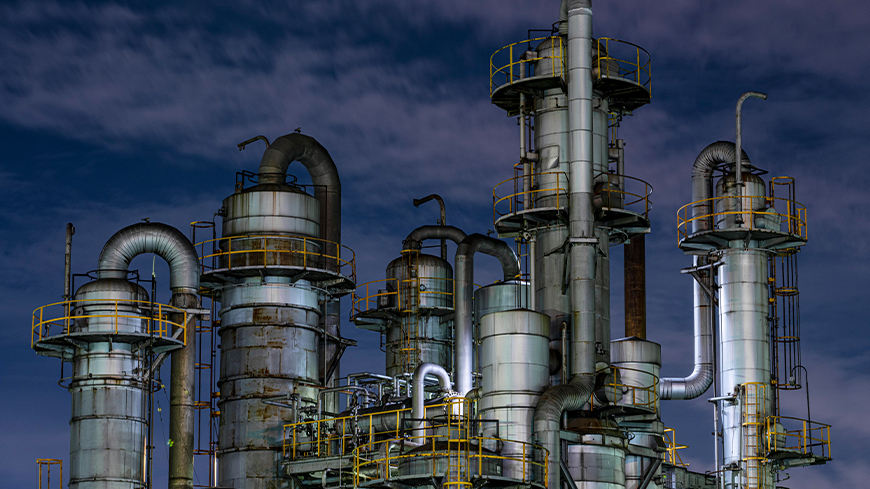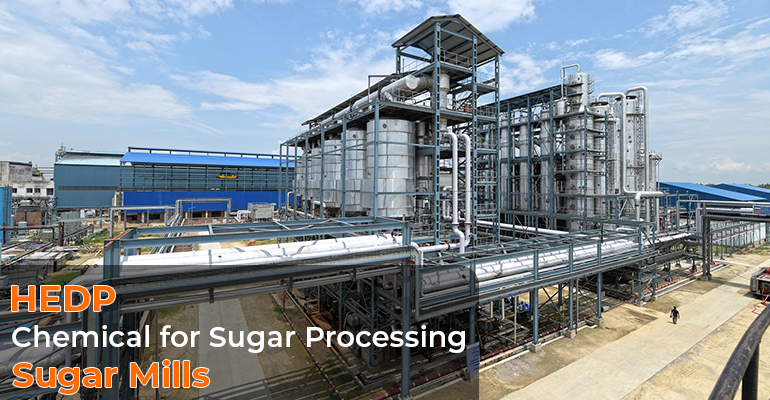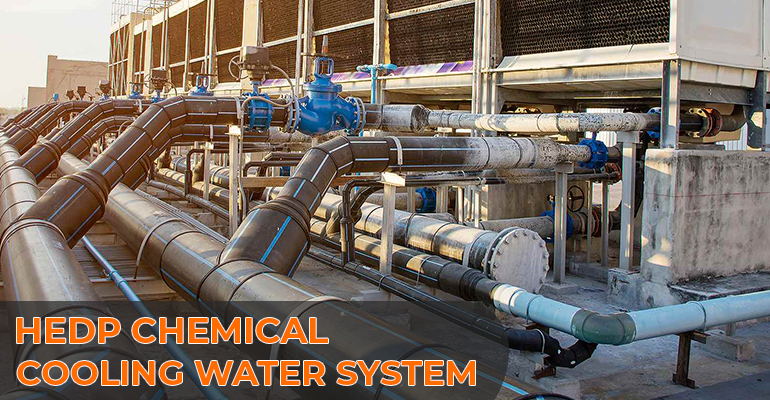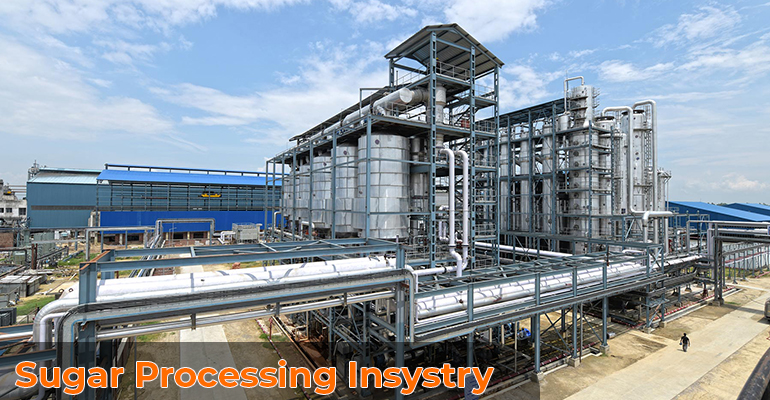1-Hydroxyethane-1,1-Diphosphonic Acid, commonly known as HEDP Chemical, is a widely used industrial compound valued…
HEDP Manufacturer & Supplier | Etidronic Acid (HEDP) Chemical Uses & Applications
Introduction: Understanding HEDP Chemical (1-Hydroxyethane-1,1-diphosphonic Acid)
In the modern industrial world, efficiency and sustainability go hand in hand, and chemicals like HEDP Chemical play a crucial role in achieving both. Known scientifically as 1-Hydroxyethane-1,1-diphosphonic Acid, and sometimes referred to as HEDP Etidronic Acid, this versatile chemical has become an essential ingredient in a wide range of industrial applications.
From water treatment systems to textile processing, HEDP Chemical is valued for its unique ability to prevent scale formation, control corrosion, and enhance the performance of industrial operations. Its stability and efficiency make it a preferred choice for manufacturers and suppliers who aim to deliver high-quality, reliable chemical solutions.
Whether you are exploring chemicals for industrial water treatment, detergents, or bleaching processes, understanding the benefits and applications of 1-Hydroxyethane-1,1-diphosphonic Acid can help businesses optimize their processes while maintaining safety and environmental standards.
In this blog, we will explore what HEDP Chemical is, its characteristics, industrial applications, and why it remains a trusted solution across multiple industries.
What is HEDP Chemical?
HEDP Chemical, scientifically known as 1-Hydroxyethane-1,1-diphosphonic Acid, is a versatile organophosphonate widely used across industries for its excellent chemical properties. Its molecular formula is C2H8O7P2, and it is characterized by a white crystalline powder or colorless liquid, depending on its concentration. HEDP is highly soluble in water, making it easy to handle and integrate into various industrial processes.
The chemical is prized for its strong chelating properties, which allow it to effectively bind metal ions. This feature makes HEDP indispensable in water treatment systems, where it helps prevent scale formation and corrosion in boilers, cooling systems, and pipelines. Beyond water treatment, HEDP finds applications in the textile industry for peroxide bleaching, in detergents as a stabilizer, and in paper processing to improve pulp quality.
With its stability under high temperatures and mild acidic to alkaline conditions, HEDP Chemical is considered both efficient and reliable for industrial use. Its multifunctional nature and excellent performance across applications highlight why manufacturers and suppliers rely on it for critical chemical solutions.
Whether it’s preventing scale, enhancing process efficiency, or maintaining equipment longevity, HEDP’s chemical properties make it a cornerstone in modern industrial applications.
Chemical Structure & Characteristics of HEDP Chemical
The chemical structure of HEDP Chemical, also known as 1-Hydroxyethane-1,1-diphosphonic Acid or HEDP Etidronic Acid, is what gives it its remarkable properties. Its molecular framework consists of a central carbon atom bonded to a hydroxyl group (-OH) and two phosphonic acid groups (-PO3H2). This unique arrangement allows HEDP to act as a powerful chelating agent, binding effectively with metal ions and preventing the formation of scale or deposits.
Key Characteristics of HEDP Chemical:
- Appearance: White crystalline powder or colorless liquid depending on concentration.
- Solubility: Highly soluble in water, which facilitates easy application in aqueous systems.
- Stability: Resistant to hydrolysis and oxidation, remaining stable in temperatures up to 200°C and across a wide pH range.
- Corrosion & Scale Inhibition: Excellent ability to prevent corrosion and scale formation in metal surfaces.
- Compatibility: Can be used alongside other chemicals in industrial processes without losing effectiveness.
These characteristics make HEDP Chemical an ideal solution for industries seeking efficient and reliable water treatment, textile processing, detergent formulation, and pulp & paper applications. Its structural features not only ensure superior performance but also enhance the longevity of industrial equipment, making it a preferred choice for manufacturers and suppliers worldwide.
Industrial Applications of HEDP Chemical
HEDP Chemical, scientifically known as 1-Hydroxyethane-1,1-diphosphonic Acid or HEDP Etidronic Acid, is highly valued in multiple industries due to its versatile properties. Its ability to inhibit scale, prevent corrosion, and act as a chelating agent makes it indispensable across various industrial applications.
1. Water Treatment:
HEDP Chemical plays a critical role in industrial water treatment systems, including boilers, cooling towers, and pipelines. Its ability to bind with metal ions prevents the formation of scale deposits and corrosion, which are major causes of reduced efficiency and increased maintenance costs in industrial equipment.
- In cooling systems, HEDP ensures smooth circulation of water, reducing the risk of blockages caused by calcium and magnesium deposits.
- In boilers, it maintains heat transfer efficiency by preventing scaling, which in turn reduces energy consumption and operational costs.
- Its stability across a wide pH range and high temperatures makes it ideal for long-term water treatment solutions.
2. Textile Industry:
In the textile sector, HEDP Chemical is extensively used for peroxide bleaching and water softening. Textile water often contains metal ions that can react with hydrogen peroxide, causing uneven bleaching and damage to fabrics. HEDP binds these metal ions, ensuring uniform color, better fabric quality, and longer textile life.
- It also prevents metal-induced discoloration during dyeing processes, improving the final product’s consistency and appeal.
- By softening water, it enhances the efficiency of detergents and chemicals used in textile processing, reducing chemical consumption and operational costs.
3. Detergents and Cleaning Agents:
HEDP finds applications in liquid detergents, soaps, and cleaning agents as a stabilizer and water conditioner.
- It prevents the formation of insoluble salts that can reduce detergent effectiveness, ensuring superior cleaning performance.
- In industrial cleaning processes, HEDP enhances the removal of tough stains and metal deposits, contributing to better hygiene and maintenance.
- Its non-toxic and environmentally friendly nature in controlled use makes it suitable for household and commercial cleaning products.
4. Pulp and Paper Industry:
The pulp and paper industry benefits from HEDP Chemical’s chelating properties, which help in pulp bleaching and controlling metal ion contamination.
- HEDP prevents discoloration and degradation of pulp, leading to higher-quality paper products.
- By controlling scale and corrosion in paper mill water systems, it reduces downtime and maintenance costs, improving overall productivity.
5. Metal Surface Treatment and Industrial Applications:
HEDP Chemical is also used in metal surface treatment, oilfield chemicals, and other industrial formulations where corrosion and scale are major concerns.
- In metal surface treatment, it protects equipment from rust and corrosion, increasing lifespan and reducing replacement costs.
- In oilfield applications, it helps control scale formation in pipelines and injection systems, ensuring smooth operations.
- Its multifunctional properties make it suitable for combination with other industrial chemicals, improving overall system efficiency.
With its wide-ranging applications, HEDP Chemical is not just a chemical additive but a key enabler of industrial efficiency and sustainability. From preventing costly equipment damage to enhancing product quality, HEDP remains a trusted solution for industries worldwide.
Benefits of Using HEDP Chemical
When industries invest in specialty chemicals, they look for efficiency, reliability, and long-term performance—qualities that HEDP Chemical (1-Hydroxyethane-1,1-diphosphonic Acid) delivers consistently. From water treatment systems to textiles and cleaning products, the advantages of using HEDP Etidronic Acid go far beyond basic chemical functions. Its unique chemical properties make it a cost-effective and sustainable solution for modern industrial needs.
Here are the major benefits of using HEDP Chemical in different industries:
1. Superior Scale Inhibition
One of the most important benefits of HEDP is its ability to prevent scale deposits in industrial equipment. Scale buildup from calcium, magnesium, and other minerals not only blocks pipelines but also reduces heat transfer in boilers and cooling systems. By binding with these minerals, HEDP keeps systems clean and efficient.
- Reduces energy consumption in boilers.
- Prevents clogging in cooling systems.
- Minimizes downtime caused by scaling issues.
2. Strong Corrosion Control
Corrosion is a common challenge in industries that rely on water-based systems. HEDP Chemical forms a protective layer on metal surfaces, significantly reducing the risk of rust and corrosion.
- Extends the lifespan of equipment.
- Cuts down on frequent repair and replacement costs.
- Provides reliable performance under both acidic and alkaline conditions.
3. High Stability Under Extreme Conditions
Unlike many other chemicals, HEDP Chemical remains stable at high temperatures (up to 200°C) and across a wide pH range. This makes it suitable for industries that operate in demanding environments.
- Performs well in both acidic and alkaline water.
- Does not break down easily, ensuring consistent performance.
- Reliable for long-term water treatment programs.
4. Excellent Chelating Properties
1-Hydroxy Ethylidene-1, 1-Diphosphonic Acid is widely recognized for its chelating ability—the capacity to bind with metal ions. This prevents unwanted reactions that could otherwise reduce product quality or damage equipment.
- In textiles, it ensures uniform bleaching.
- In detergents, it improves cleaning efficiency.
- In paper processing, it controls metal ion contamination for better pulp quality.
5. Versatility Across Industries
Unlike chemicals that serve a narrow purpose, HEDP offers multi-industry benefits.
- Water Treatment: Prevents scale and corrosion in boilers, pipelines, and cooling systems.
- Textile: Improves bleaching results and fabric quality.
- Detergents: Enhances cleaning power and stabilizes formulations.
- Pulp & Paper: Improves pulp brightness and reduces metal contamination.
- Oilfield & Metal Treatment: Controls scaling and protects pipelines and machinery.
6. Cost-Effective Solution
By preventing scaling, corrosion, and downtime, HEDP Chemical significantly lowers maintenance costs. Its long-lasting efficiency reduces the need for frequent chemical dosing, making it a cost-effective choice for industries.
7. Environmentally Friendly in Controlled Use
With growing awareness of environmental safety, industries prefer chemicals that are effective yet safe when used responsibly. HEDP Chemical is biodegradable in controlled use, making it an eco-conscious choice for companies aiming to maintain sustainability.
8. Enhances Equipment Lifespan & Efficiency
Perhaps one of the most valuable benefits of using HEDP is the long-term protection it provides to expensive industrial machinery. By reducing scale and corrosion, equipment remains efficient, reliable, and durable—saving companies from unnecessary capital investments.
Summary of Benefits
In short, the benefits of HEDP Chemical include:
- Prevents scale and corrosion.
- Works under extreme pH and temperature conditions.
- Improves process efficiency across multiple industries.
- Cost-effective and long-lasting solution.
- Eco-friendly under controlled application.
- Enhances product quality and equipment life.
These wide-ranging benefits make HEDP Chemical (1-Hydroxyethane-1,1-diphosphonic Acid) a go-to choice for industries worldwide. Its performance-driven results and ability to meet diverse needs highlight why it remains one of the most trusted specialty chemicals today.
HEDP vs Other Phosphonates: What Makes HEDP Different?
In the family of phosphonate-based chemicals, HEDP (1-Hydroxyethane-1,1-diphosphonic Acid) is one of the most widely used. However, it is not the only option available to industries. Other phosphonates such as ATMP (Amino Trimethylene Phosphonic Acid), PBTC (2-Phosphonobutane-1,2,4-Tricarboxylic Acid), and DTPMP (Diethylene Triamine Penta Methylene Phosphonic Acid) are also commonly used for water treatment, scale inhibition, and corrosion control.
1. HEDP vs ATMP
- ATMP is known for its excellent scale inhibition, especially in systems with high hardness water.
- HEDP, on the other hand, provides better corrosion inhibition and stability under high temperatures.
- In simple terms: ATMP is excellent at preventing scale, while HEDP is more balanced, providing both scale and corrosion control.
Industries using boilers and cooling systems under high thermal stress often choose HEDP Chemical for reliability.
2. HEDP vs PBTC
- PBTC has stronger scale inhibition under high-temperature and alkaline conditions compared to HEDP.
- However, HEDP Chemical is more cost-effective and widely available, making it suitable for a broader range of applications.
- PBTC is often used in combination with HEDP for enhanced performance.
If budget and availability are critical, HEDP is preferred, but for special conditions requiring stronger scale control, PBTC may be selected.
3. HEDP vs DTPMP
- DTPMP has superior scale inhibition capacity compared to HEDP due to its multiple phosphonic acid groups.
- However, DTPMP is more expensive and less stable under certain pH conditions.
- HEDP Chemical strikes a balance between performance, cost, and stability, making it suitable for day-to-day industrial use.
For industries needing powerful scale control, DTPMP is useful, but HEDP remains the go-to option for general industrial water treatment.
4. Why Industries Prefer HEDP
- Balanced properties: HEDP offers both scale inhibition and corrosion protection.
- High stability: Performs well even at high temperatures and wide pH ranges.
- Cost-effective: Cheaper than DTPMP and PBTC, while delivering reliable results.
- Versatility: Works in water treatment, textiles, detergents, pulp & paper, and metal treatment.
Summary
While ATMP, PBTC, and DTPMP have their unique advantages, HEDP Chemical (1-Hydroxyethane-1,1-diphosphonic Acid) stands out as the most balanced and cost-effective solution. It combines strong performance, wide availability, and multi-industry applications—making it the preferred choice for many manufacturers and suppliers worldwide.
Safety and Handling of HEDP Chemical
While HEDP Chemical (1-Hydroxyethane-1,1-diphosphonic Acid) is widely used across industries for its excellent properties, it is still a specialty chemical and should be handled with care. Ensuring proper safety standards not only protects workers but also maintains the chemical’s effectiveness during storage and use.
1. Storage Guidelines
- Temperature: Store HEDP in a cool, dry, and well-ventilated area away from direct sunlight and heat sources.
- Containers: Always keep the chemical in tightly sealed containers, preferably in plastic drums or HDPE containers to prevent contamination.
- Segregation: Do not store HEDP alongside strong oxidizing agents or incompatible chemicals.
Proper storage ensures that HEDP retains its stability and effectiveness for long-term industrial applications.
2. Handling Precautions
- Workers should always wear personal protective equipment (PPE) such as gloves, safety goggles, and protective clothing while handling HEDP.
- Avoid direct contact with skin and eyes, as concentrated solutions may cause mild irritation.
- Use in well-ventilated areas or under exhaust systems to prevent prolonged inhalation of vapors during bulk handling.
By following these precautions, industries can ensure a safe and controlled working environment.
3. Spill and Disposal Measures
- In case of small spills, dilute the chemical with water and clean the area immediately.
- For larger spills, contain the material and prevent it from entering drainage systems.
- Dispose of waste according to local environmental regulations and guidelines.
Proper disposal prevents environmental contamination and maintains compliance with safety standards.
4. Transportation Safety
- HEDP should be transported in approved containers that are tightly sealed.
- Follow hazard labeling requirements as per international chemical transport standards.
- Ensure careful handling during loading and unloading to avoid leakage.
5. Regulatory and Environmental Considerations
- HEDP is generally considered environmentally safe in controlled dosages, but overuse should be avoided.
- It complies with most industrial water treatment and detergent formulation regulations, making it a trusted choice globally.
- Always check local regulatory guidelines before large-scale application.
Summary
Safe handling of HEDP Chemical ensures that industries can enjoy its scale inhibition, corrosion control, and chelating benefits without compromising worker safety or environmental health. By following proper storage, handling, and disposal practices, companies can use HEDP effectively while staying compliant with industrial standards.
Packaging & Supply of HEDP Chemical
When your clients source HEDP Chemical (1-Hydroxyethane-1,1-diphosphonic Acid), knowing the packaging, supply capabilities, and quality specifications becomes critical for decision-making. Here’s a comprehensive and humanized breakdown:
1. Product Specifications & Quality
Maxwell Additives offers HEDP–60% (also known as Etidronic Acid 60%) as a high-performance scale and corrosion inhibitor. Here’s what sets it apart:
- Purity & Active Content: Typically at 60% active HEDP, often with a technical grade, ensuring effective performance across applications.
- Physical State: Offered in a clear, colorless to pale yellow aqueous solution. Solid forms are available as white crystalline powder, ideal for cold or winter environments.
- Stability: Outstanding thermal and chemical stability—tolerates high temperatures (up to 200–250 °C), extreme pH, and chlorine oxidation—making it suitable for demanding industrial environments.
2. Packaging Formats
To meet diverse industrial needs, Maxwell Additives provides flexible packaging options:
- HDPE Carboys / Drums: Standard size is 65 kg carboys—durable, leak-resistant for easy handling.
- Larger Containers: Options like 275–295 kg polydrums or 1,400 kg IBC totes are available for bulk users.
- Solid Packaging: For crystalline forms, packaging includes 25 kg PE inner-liner bags or 1,000 kg woven bags, depending on customer requirements.
3. Production Capacity & Delivery
- Manufacturing Capacity: Maxwell can produce up to 500 metric tons per year, ensuring steady supply for large-scale industrial clients.
- Delivery Lead Time: Fast turnaround—typical delivery within 3 to 4 days from order confirmation.
4. Storage & Shelf Life
Proper storage is key to maintaining HEDP’s performance:
- Shelf Life: Can be stored safely for up to ten months in cool, shady, and dry areas.
- Best Practices: Always keep containers tightly sealed and upright; avoid exposure to heat or direct sunlight. This preserves stability and avoids degradation.
5. Quality Assurance & Client Confidence
- Technical Grade Quality: Maxwell markets its HEDP under brand names like Phosphoman®, ensuring consistency in composition and performance.
- Made in India: Local manufacturing offers supply chain reliability and cost-efficiency.
- Trust Factor: With 35+ years in specialty chemicals, Maxwell Additives has built credibility as a dependable supplier.
| Factor | Details |
|---|---|
| **Active Content** | 60% (Technical Grade) |
| **Physical Forms** | Liquid solution (65 kg HDPE), thermal-stable solid crystal |
| **Packaging Options** | HDPE carboys, polydrums, IBCs, PE/ woven bags |
| **Production Capacity** | \~500 MT/year |
| **Delivery Time** | \~3–4 days |
| **Shelf Life** | \~10 months under proper conditions |
| **Manufacturer** | Maxwell Additives (India) |
Maxwell Additives – Your Trusted HEDP Manufacturer & Supplier in India
When it comes to high-quality HEDP (1-Hydroxyethylidene-1,1-Diphosphonic Acid), Maxwell Additives Pvt. Ltd. has established itself as a leading HEDP manufacturer and a trusted HEDP supplier in India. With years of expertise in specialty chemicals, our company ensures that every batch of HEDP meets international quality standards, making us the preferred choice for industries across water treatment, textiles, paper, and detergents.
As a reputed Etidronic Acid supplier, we focus not only on delivering superior products but also on providing consistent supply, technical support, and customer satisfaction. Our production process is backed by advanced technology and strict quality control, ensuring that our HEDP chemical stands out for its purity, stability, and effectiveness.
Maxwell Additives is proud to serve a wide customer base across India and overseas, supporting industries that rely on HEDP for scale inhibition, corrosion prevention, and chelating properties. Whether you are a small-scale buyer or a large industrial client, we ensure timely delivery and competitive pricing to meet your needs.
By choosing us as your HEDP manufacturer and supplier in India, you gain a partner who values long-term business relationships and is committed to innovation, sustainability, and excellence.
FAQs on HEDP (1-Hydroxyethylidene-1,1-Diphosphonic Acid)
Q1. What is HEDP?
HEDP (1-Hydroxyethylidene-1,1-Diphosphonic Acid) is an organophosphonic acid widely used as a scale and corrosion inhibitor in water treatment, textiles, paper, and detergent industries.
Q2. What is HEDP used for?
HEDP is used in industrial water treatment, cooling towers, boilers, textile dyeing, detergents, and bleaching processes. Its strong chelating properties make it effective in binding metal ions and preventing scale formation.
Q3. Is HEDP the same as Etidronic Acid?
Yes, HEDP is also known as Etidronic Acid. Both names refer to the same chemical compound with excellent stability and anti-scaling performance.
Q4. What are the advantages of using HEDP in water treatment?
HEDP prevents scale deposits, controls corrosion, and stabilizes metal ions in water systems, ensuring efficient operation and longer equipment life.
Q5. Why choose Maxwell Additives as your HEDP supplier?
Maxwell Additives is a leading HEDP manufacturer and supplier in India, known for high product purity, consistent supply, competitive pricing, and customer support across industries.
Q6. How is HEDP supplied by Maxwell Additives?
We offer HEDP in 25 kg, 50 kg HDPE drums and bulk packaging options to meet industrial requirements.
Q7. Can HEDP be exported outside India?
Yes, Maxwell Additives supplies HEDP to both domestic and international markets, ensuring compliance with global standards.
Conclusion
HEDP Chemical (1-Hydroxyethane-1,1-diphosphonic Acid) has become one of the most trusted phosphonate chemicals in the water treatment and industrial sector. Its excellent chelating ability, scale inhibition, and stability under harsh conditions make it indispensable for industries ranging from textiles and paper to oilfields and water treatment plants.
As a leading HEDP manufacturer and supplier in India, Maxwell Additives Pvt. Ltd. is committed to delivering consistent quality and reliable supply to industries worldwide. With years of expertise, we ensure that our clients get not just a chemical, but a complete solution that improves efficiency, reduces maintenance costs, and supports sustainable operations.
If you are looking for a trusted HEDP supplier in India or a reliable Etidronic Acid supplier, Maxwell Additives is your ideal partner. Get in touch with us today to explore how our HEDP solutions can add value to your business.





